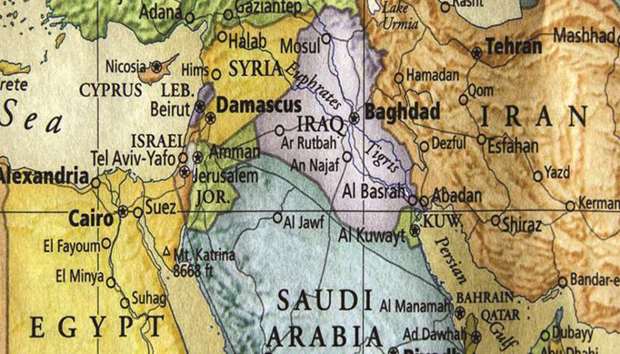The world’s worst dilemmas are characterised by a lack of good options. Indeed, that’s the definition of a dilemma. But bad options are often the result of bad choices.
This is the case in the Middle East. In “The Prize,” his massive Pulitzer-Prize-winning history of oil, Daniel Yergin suggests that the first bad choice for that most intractable of trouble spots occurred in 1911. Winston Churchill, Britain’s First Lord of the Admiralty, concluded that war with Germany had become inevitable, and he decided to convert his nation’s warships to oil power.
Previously, British ships had been propelled by domestic coal, but Churchill recognised the superior power and efficiency of oil. Oil-driven ships could go farther at higher speeds and with less manpower. Critics pointed out that Britain would no longer be able to depend on secure coal from Wales. Instead it would be required to acquire oil from exotic locations such as Persia, as Iran was known at the time.
In retrospect, it’s fairer to Churchill to call his choice “inevitable” rather than “bad.” World Wars I and II were won with oil power, and in the case of WWII particularly, victory was essential. Clearly, the wars couldn’t have been won – or even been possible on their enormous scale – without oil.
Other choices, however, were less inevitable. Around the same time Churchill was choosing oil over coal, the United States was choosing oil over electricity to power personal motor vehicles instead of public transportation, a choice that greatly influenced the shape the modern world.
The vast oil reserves in the Middle East elevated the West’s interest in that region, as well as the status of countries whose natural resources had previously been severely limited. This led to more bad choices.
For example, democracy was off to a good start in Iran after the revolution of 1905, which began after the shah’s son sold to Britain a generous 60-year concession for the rights to Iranian oil. Unfortunately, the British, preferring a compliant monarchy to a parliament with a mind of its own, staged a coup in 1921 and put the governing power into the hands of a dictatorial shah.
By the early 50’s, the Iranian parliament had reasserted its power against a new shah, a weak leader with the personality of a playboy. Iran’s democratic and nationalistic aspirations were embodied in the prime minister, Mohamed Mossadegh, who became an international spokesman for anti-colonialism.
Unfortunately, the United States sponsored a coup in 1953 that deposed Mossadegh and empowered the Shah of Iran, whose dictatorial rule and lavish lifestyle led to the 1979 revolution that put into power the current theocracy.
Other bad choices ensued, from the terrible decision to invade Iraq in 2003 to President Trump’s decision last week to recognise Jerusalem as the capital of Israel, while asking for nothing in return. America appears to be on the verge of another bad choice: taking the wrong side in the regional rivalry between Iran and Saudi Arabia.
President Trump seems to prefer Saudi Arabia, a long-time, reliable oil provider. The fact that the country is run by autocratic, often-corrupt strongmen doesn’t seem to put him off.
Iran has plenty to detest, as well, but despite its current theocracy, it has a long democratic tradition, as well as a young population with significant inclinations toward moderation and modernity. Personally, I’d bet on Iran over Saudi Arabia.
But our history of bad choices in the Middle East ought to imply the need for even-handed caution. The natural rivalry between Saudi Arabia and Iran predates the Oil Century, and imagining that the current inexperienced and impulsive administration and understaffed State Department can choose wisely between them is the height of hubris.
For a century we’ve flooded the Middle East with petrodollars. Instead, a better choice might be to export the soft power of better ideas: enlightened attitudes toward homosexuals, more tolerance for non-Muslims and improved status for women.
Saudi Arabia and Iran could both benefit from these enlightened principles, and we could benefit from their reinforcement in our own country.



